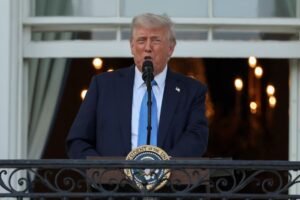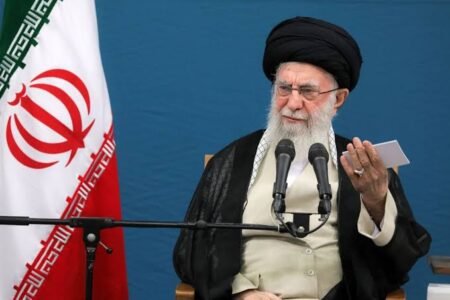A car drove into a crowd in Munich, injuring at least 30 people, some badly, just 10 days before Germans vote in federal elections.
According to authorities, the driver was Farhad N., a 24-year-old Afghan asylum seeker identified by local media. He was detained at the scene and is due in court on Friday.
Police stated counter-terrorism officers had taken over the probe, although Bavaria’s state governor later emphasized that there was no early evidence of “previous extremist backgrounds.”
The events in Munich followed a series of deadly attacks in Germany, all of which were supposedly carried out by immigrants. Chancellor Olaf Scholz stated that the driver “must be punished and forced to leave the country.”.
The event occurred on the eve of the Munich Security Conference, which was scheduled to bring world leaders such as Ukraine’s President Volodymyr Zelensky and US Vice President JD Vance to the city.
On Thursday, at about 10:30 local time (09:30 GMT), there was a ramming during a transport workers’ union march.
The car was seen approaching police cars at the demonstration on Dachauer Strasse, near Munich’s major train station, before accelerating up and plowing into the throng, according to police. Police fired at the vehicle before apprehending the man.
Rescue helicopters arrived swiftly, and Munich Mayor Dieter Reiter said that children had been harmed.
Eyewitnesses told the BBC that they witnessed people fleeing to stores and residential structures as the “distressing” sight unfolded.
“It is obviously very unsettling,” remarked a student who was studying at a neighboring coffee shop. “I can’t concentrate on anything else.”
Immigration and security issues were already at the center of the 23 February elections as a result of recent incidents.
According to the German Press Agency, the suspect came to Germany as a minor in 2016 and had his asylum application denied the following year.
The agency stated that he was scheduled to be deported in the autumn of 2020.
Bavarian Interior Minister Joachim Herrmann stated that he had not been obliged to leave Germany owing to security worries in Afghanistan.
The suspect had a valid residence and work permit. Bavaria’s Premier Markus Söder described the incident as a “suspected attack” and stated that “something has to change in Germany—and quickly.”
He added that previous extremist backgrounds are not easily recognizable at first glance and that “smaller things” needed to be evaluated in detail.
“When you get the news that someone has once again driven a car into a crowd of people, the fact that there are many injured is a slap in the face,” said Söder.
“We will clarify all the details, but we react cautiously to every attack like this.”
Police were unable to determine if anyone else was involved, despite allegations of a second person in the car. They urged witnesses to provide information and film of the incident.










